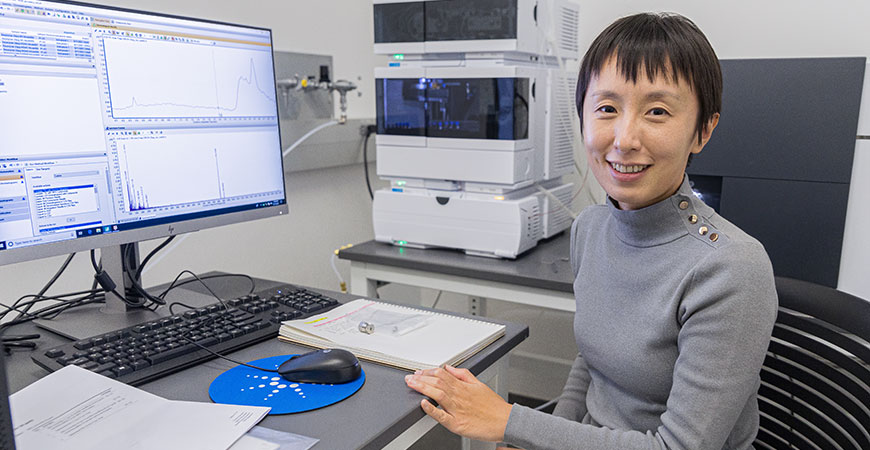
Lots of people look at clouds and think about flying, floating or the shapes they see. When atmospheric chemistry Professor Xuan Zhang looks at clouds, she thinks about tiny particles in the air.
With her first grant from the National Science Foundation, Zhang is studying how pine tree emissions produce particles that act as cloud condensation nuclei.
“Clouds have a mediating effect on the weather — it’s one way nature mediates climate change,” Zhang said. “We need to understand highly oxygenated multifunctional compounds (HOMs), which can seed clouds.”
As a new UC Merced faculty member in the Department of Life and Environmental Sciences, Zhang received $500,000 to look at HOMs, which have recently been found to play an important role in driving the initial particle growth in the atmosphere.
Aerosols can seed clouds as long as they are made up of correctly sized particles, and HOMs, which naturally come from pine trees, can nucleate to form these particles.
Using mass spectrometry and environmental test chambers that capture air samples, Zhang and her lab can detect and observe these molecules in real time. Understanding the formation mechanism of atmospheric aerosols will help improve climate models for future projections of climate change.
“We are looking at life cycles of these molecules and what happens to them,” Zhang said. “We can track their fates and lifetimes. If they can survive for a few days, they can sustain the particles that will bring clouds.”
The three-year grant will support two graduate students and a couple of undergraduates, too. Through a collaboration with the National Center for Atmospheric Research in Boulder, Colo., Zhang’s students will also have the opportunity to meet and work with scientists there to further their understanding of aerosols and clouds, as well as attending workshops and other activities.
It has long been thought more than half of the world’s cloud droplets were formed through new particle formation involving sulfuric acid. But HOMs are a newly discovered chemical pathway to cloud formation in nature.
“We know particles have effects on health, and we also need to keep in mind that they have such a profound effect on climate,” Zhang said.



